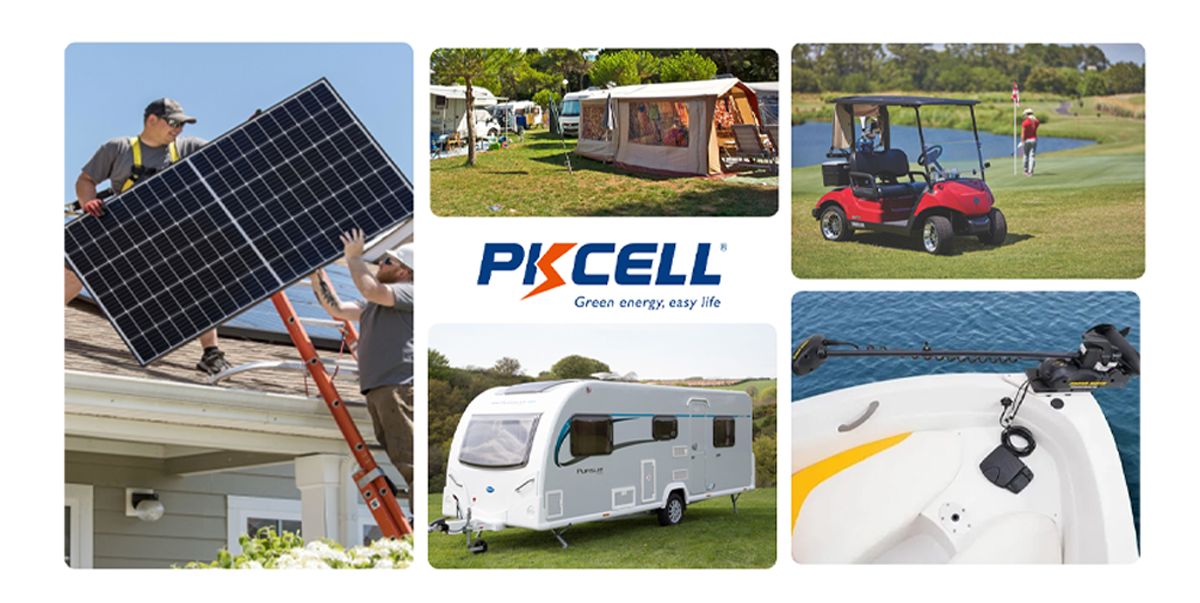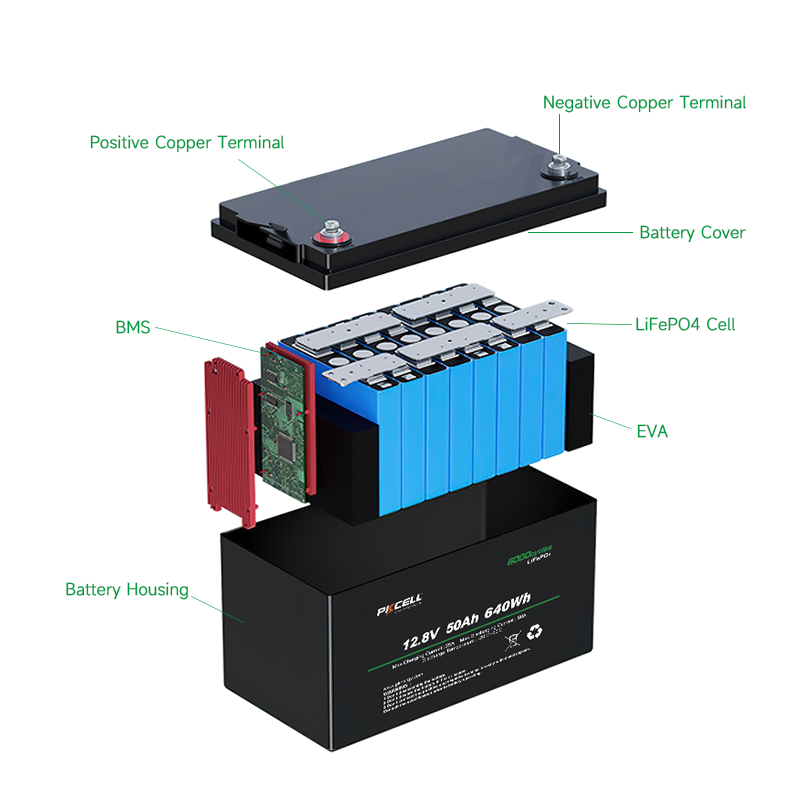PKCELL 12V 50Ah 640Wh LifePO4 Lithium Battery Pack Supplier
LiFePo4 battery is the latest technology product in the battery storage market, It has many features including:
1) Enhanced Cycle Life: Capable of up to 6,000 charge-discharge cycles, LiFePO4 batteries outperform lead-acid batteries, which typically last for only 300 to 500 cycles.
2) Superior Energy Storage: LiFePO4 batteries have a greater energy density than lead-acid batteries, allowing them to hold more power at the same weight.
3) Reduced Self-Discharge: LiFePO4 batteries from Pkcell exhibit an impressively low self-discharge rate of just 1% to 3% monthly. In stark contrast, lead-acid batteries can lose up to 30% of their charge each month!
4) Quicker Charging Times: Charging a LiFePO4 battery is a swift process, taking only 1 to 3 hours to reach full capacity, whereas lead-acid batteries typically require 6 to 12 hours, if not more.
5) Lightweight and Compact: PKCELL LiFePO4 batteries are 70% lighter than other batteries on the market. Get rid of heavy lead-acid batteries and get a better travel experience with a lighter profile.
6) Enhanced Safety Features: PKCELL LiFePO4 batteries incorporate a high-quality BMS system for meticulous control over the battery's charge and discharge processes, along with temperature monitoring, reducing the risk of thermal runaway.
Applications
| Specifications | ||
|---|---|---|
| Electrical Characteristics | Nominal Voltage | 12.8V |
| Nominal Capacity | 50Ah@0.5C | |
| Energy | 640Wh | |
| Internal Resistance | ≤30mΩ | |
| Cycle Life | 2000 Cycles @ 0.2C 100%DOD | |
| Charge retention and capacity recovery capability | Standard charge the battery, and then put aside at room temperature for 28d or 55 °C for 7d, Charge retention rate ≥90%, Recovery rate of charge≥90 | |
| Standard Charging | Max. Charging Voltage | 14.2-14.6V |
| Charging Mode | 0.2C to 14.6 V, then 14.6V, charge current to 0.02C (CC/CV) | |
| Charging Current | 10A | |
| Max. Charging Current | 25A | |
| Standard Discharging | Discharging Current | 10A |
| Max. Continuous Current | 50A | |
| Discharging Cut-off Voltage | 10.0V | |
|
Operating Condition
|
Charge Temperature | 0°C to 45°C(32°F to 113°F) @60±25% Relative Humidity |
| Discharge Temperature | -20°C to 60°C(-4°F to 140°F) @60±25% Relative Humidity | |
| Storage Temperature | 0°C to 45°C(32°F to 113°F) @60±25% Relative Humidity | |
| Water Dust Resistance | IP65 | |
| Casing | Plastic | |
| Dimensions(L*W*H) | 197*165*170mm | |
| Weight | Approx: 7.6kg |
|
| Terminal | M8 | |
Details
Can Lithium Iron Phosphate batteries be used for the inverter?
Lithium Iron Phosphate (LiFePO4) batteries can indeed be utilized with inverters, offering several advantages for home energy storage. These batteries can be charged either through Grid AC power or solar panels, facilitated by an MPPT (Maximum Power Point Tracking) system. Many hybrid inverters come equipped with MPPT functionality, simplifying the integration process. PKCELL offers a LiFePO4 battery system that can be seamlessly wired and connected to such inverters, compatible with various brands. The PKCELL LiFePO4 battery boasts faster charging speeds, extended lifespan, and up to 15% higher efficiency compared to lead-acid batteries. Moreover, its inherent safety features, including the absence of open wires and connectors, make it suitable for residential use.
What are the benefits of a Lithium Iron Phosphate home battery?
The benefits of employing a Lithium Iron Phosphate home battery are significant. LiFePO4 batteries can endure thousands of recharge cycles, ensuring long-term reliability. They exhibit greater stability and boast higher energy density, voltage capacity, and lower self-discharge rates compared to alternative rechargeable batteries. These attributes contribute to enhanced power efficiency, as individual cells retain charge for extended durations.
How do you charge a Lithium Iron Phosphate battery with a solar panel?
Charging a Lithium Iron Phosphate battery with solar panels requires caution. It's imperative not to charge these batteries directly from solar panels. Instead, a regulator or MPPT system is necessary to regulate the charging process effectively. Alternatively, the battery system can be charged directly from a Hybrid inverter, streamlining the charging procedure and ensuring optimal performance and safety.
Some of Model Selections
| Battery Cell | Size | Weight | Voltage | Capacity | More Details | |
|---|---|---|---|---|---|---|
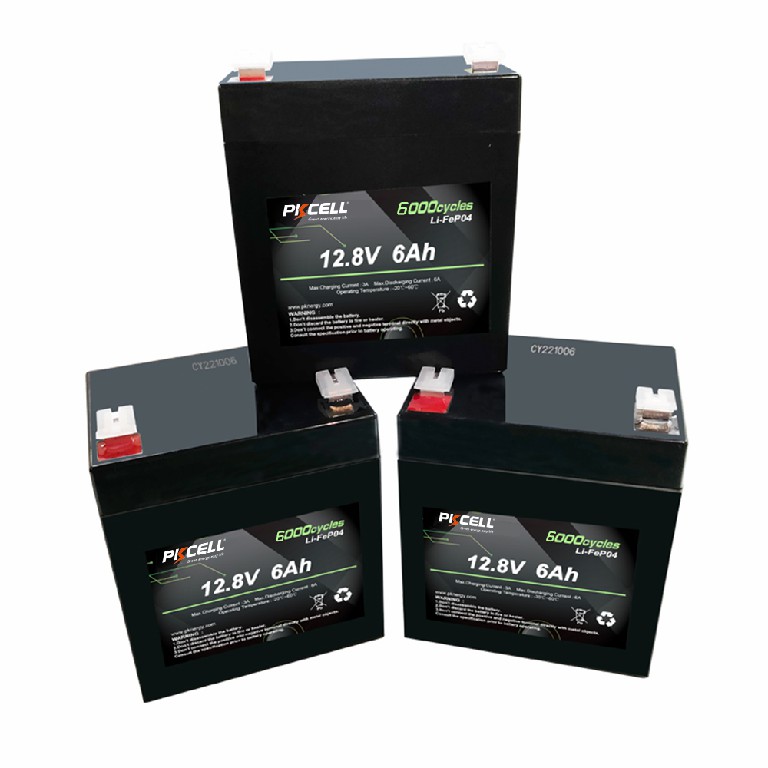 |
LiFePo4 |
90*70*101mm | 0.66Kg | 12.8v | 6Ah | Request QuoteDownload |
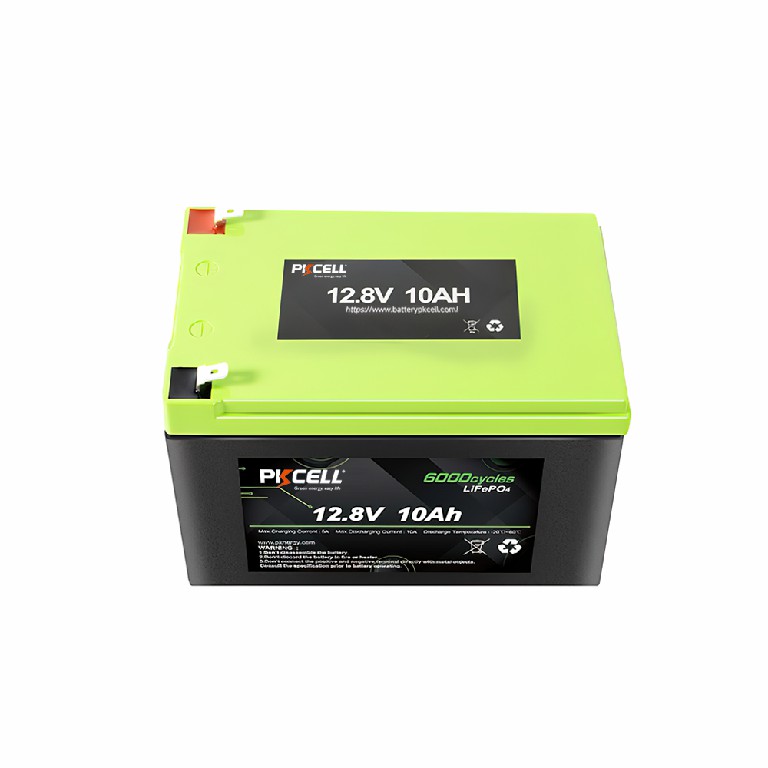 |
LiFePo4 |
151*90*90mm | 1.28Kg | 12.8v | 10Ah | Request QuoteDownload |
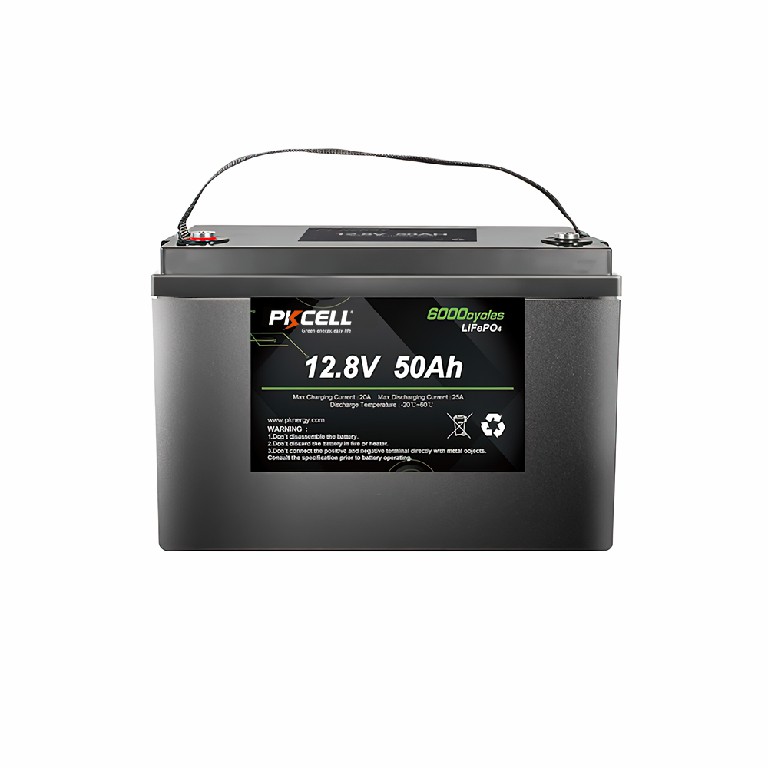 |
LiFePo4 |
197*165*170mm | 7.6kg | 12.8v | 50Ah | Request QuoteDownload |
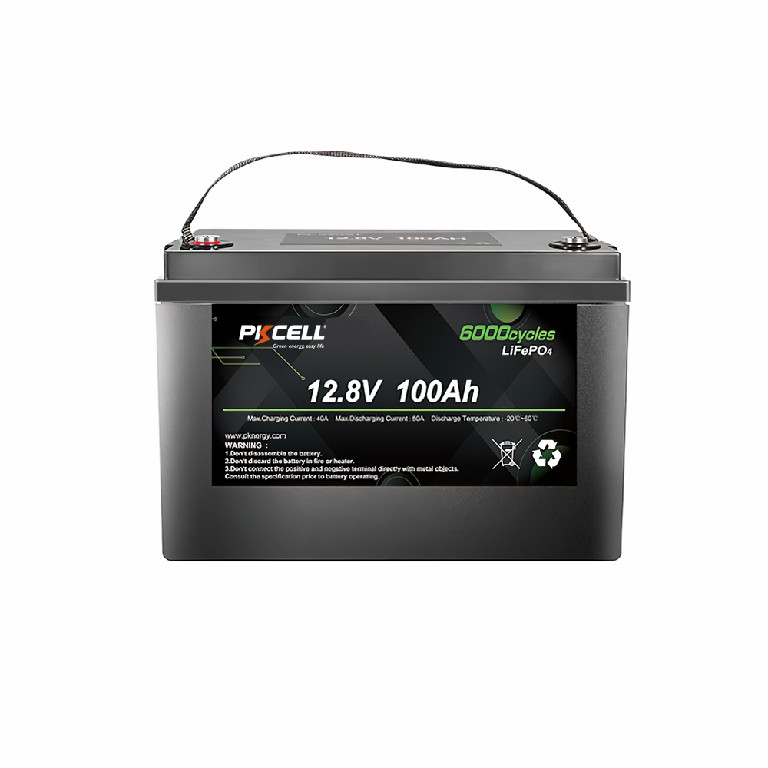 |
LiFePo4 |
330*172*215mm | 12.5Kg | 12.8v | 100Ah | Request QuoteDownload |
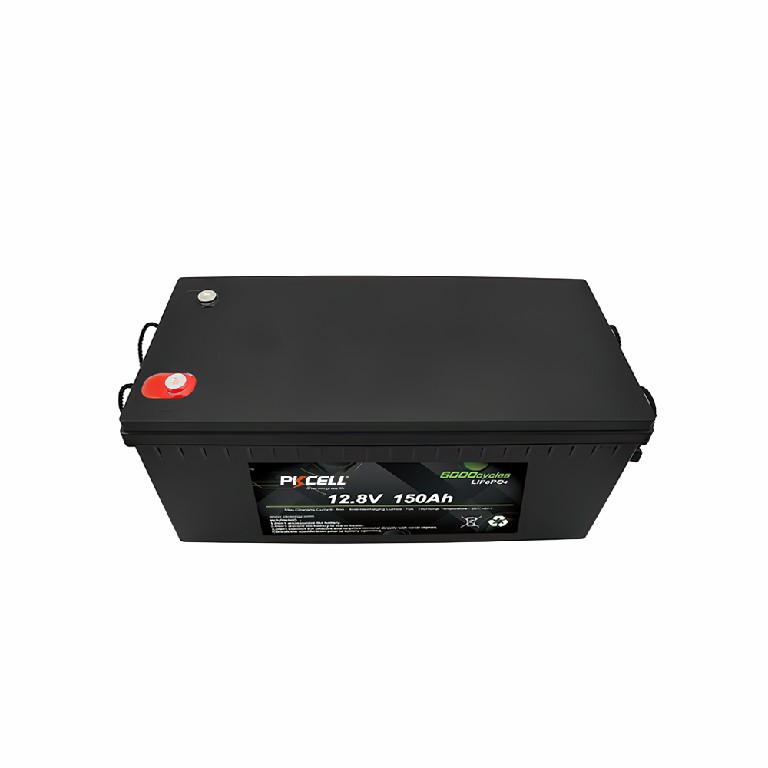 |
LiFePo4 |
330*172*215mm | 16.2Kg | 12.8v | 150Ah | Request QuoteDownload |
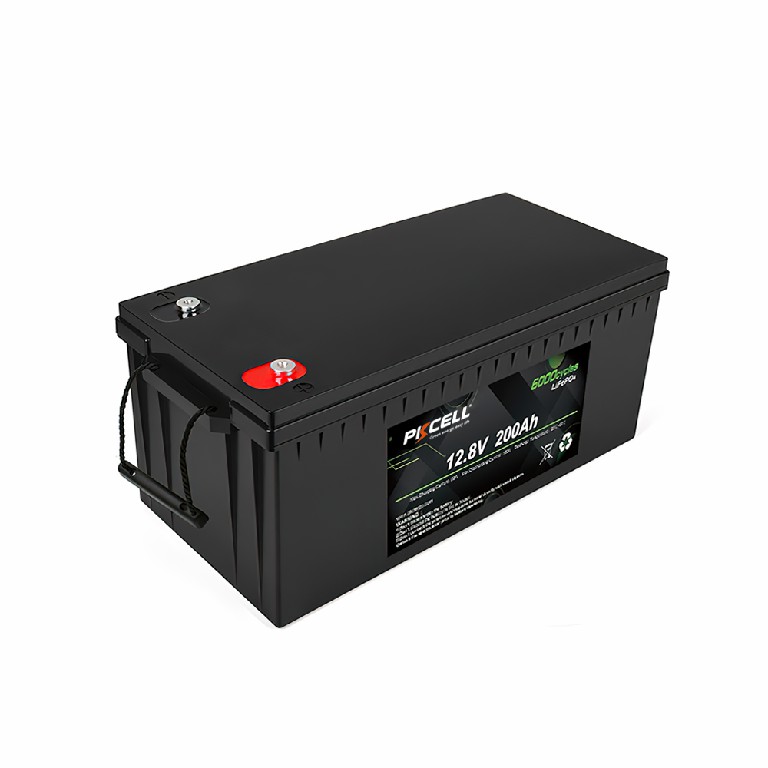 |
LiFePo4 |
522*240*218mm | 21.5Kg | 12.8v | 200Ah | Request QuoteDownload |
 |
LiFePo4 |
483*170*240mm |
21.5Kg | 25.6v | 100Ah | Request QuoteDownload |
 |
LiFePo4 |
522*240*218mm |
40.0Kg | 25.6v | 200Ah | Request QuoteDownload |
| Model | Size | Weight | Voltage | Capacity | Action |
|---|




